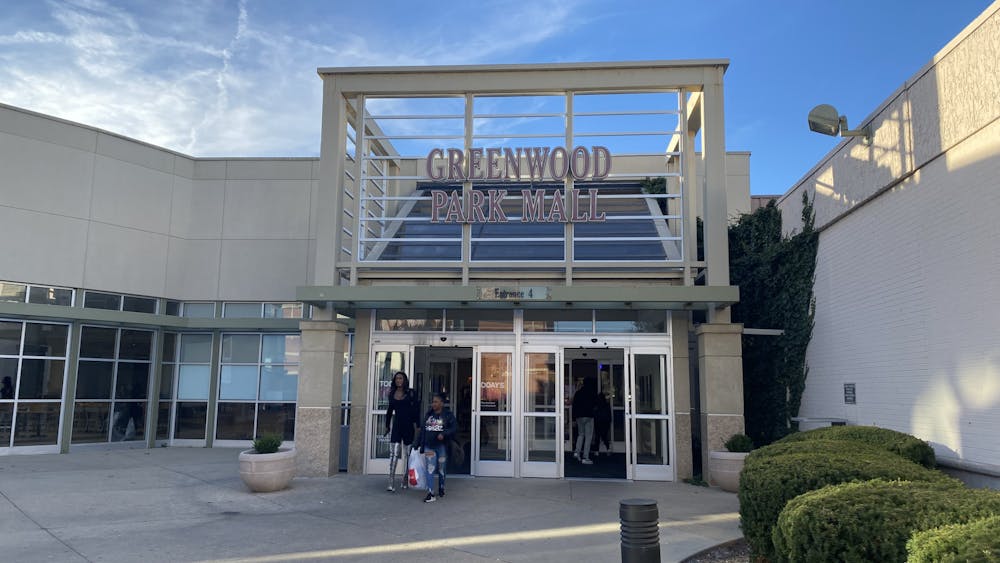When junior Cat Mitchell returned to her Campus Walk apartment after winter break, she didn’t expect to find her TV, DVD player, DVDs and her roommate's desktop computer, monitor, printer and speakers missing.
Since the break-in, the only thing that has been replaced is her roommate’s computer, which her parents’ insurance covered.
“If you don’t have renter’s insurance with Campus Walk, there’s not much you can do,” said senior Caroline Mathis, Mitchell’s roommate. “I had renter’s insurance last year, but I didn’t get robbed so I didn’t renew it.”
When a landlord rents to students, he has homeowner’s insurance, but in almost all jurisdictions it won’t cover the tenants, said Randall Frykberg, director of IU Student Legal Services. So if a house burns down or floods, the house is covered, but the renter’s personal belongings are not.
Students can often register for renter's insurance through their car insurance company or their parents’ insurance, Frykberg said.
Hoosier Court apartments requires their tenants to purchase renter’s insurance.
“It’s mainly to cover them and to cover us,” said Beverly Rahe, property manager for Hoosier Court. “Last year we had a group turn off their heat and it ended up freezing pipes and flooding four apartments.”
Renter’s insurance can often be as cheap as $10 a month, Frykberg said.
“The reason renter’s insurance is cheap is because it’s not very often that people get broken into or their house burns down,” he said.
Students also need to be aware of what their insurance covers, Frykberg said. For instance, replacement coverage will buy someone a new piece of property, but otherwise tenants will only be reimbursed for what the item is worth, and the property often isn’t worth as much two years down the road.
Students should also take down serial numbers of all their electronics so police have proof of purchase and a starting point when investigating the missing items, Frykberg said. IU Student Legal Services can look over students’ insurance policies for no charge if they aren’t sure what it covers.
“One of the reasons we exist is because insurance policies are not easy to read,” Frykberg said. “Insurance companies make money by not covering things. Sometimes there will be exclusions for things. The best advice is to read your policy.”
Although Mitchell and Mathis didn’t have renter’s insurance, they did have the serial numbers to some property they reported to the police. But they don’t expect to get it back.
They said their best bet might be to search pawnshops in neighboring counties.
“Some burglars are really stupid,” Frykberg said. “If you put a really vivid description on Craigslist, people can call the police.”
What to know before renting
LEASE LENGTHS
Most Bloomington leases are signed for one year, but some are open-ended, meaning both the tenant and the landlord reserve the right to terminate the lease at any time.
Some leases include an automatic renewal clause, in which the lease is automatically renewed unless tenants give written notice 30 to 60 days in advance of the end of the lease.
LEASE CLAUSES TO LOOK FOR
Joint and several liability clause
Under most leases, roommates are “jointly and severally liable,” which means that if one roommate doesn’t pay his or her share of the rent, the other(s) will have to pay it or be evicted.
If your lease doesn’t have a jointly liable clause, it generally means that landlords rent individual rooms and will often have the right to replace any person who has been evicted with a roommate of their choosing.
Savings clause
Some leases will have a savings clause making you liable for rent after you’ve been evicted, meaning you will have to pay your monthly rent until the lease ends even though you can’t live in the house or apartment.
Acceleration clause
This clause says that once a tenant breaches the lease terms, he or she owes the rent for remainder of the lease term immediately. However, when a tenant breaches a lease, the landlord legally must re-rent the property as soon as possible in order to minimize the amount of money they will lose.
Attorney’s fees clause
This is written into most leases and means that if a landlord hires a lawyer for any reason, brings suit against the tenant and wins, then the tenant will be responsible for all of the landlord’s attorney’s fees.
“Lock-out” clause
Allows a landlord to gain possession of a home without an eviction order. These clauses are rare, especially since lock-outs are illegal under Indiana law.
Co-signer clauses
These require a co-signer, typically a student’s parent. Some landlords require a co-signer for international students. However, this clause may violate Indiana law.
Insurance helps tenants after break-ins, natural disasters
Get stories like this in your inbox
Subscribe





